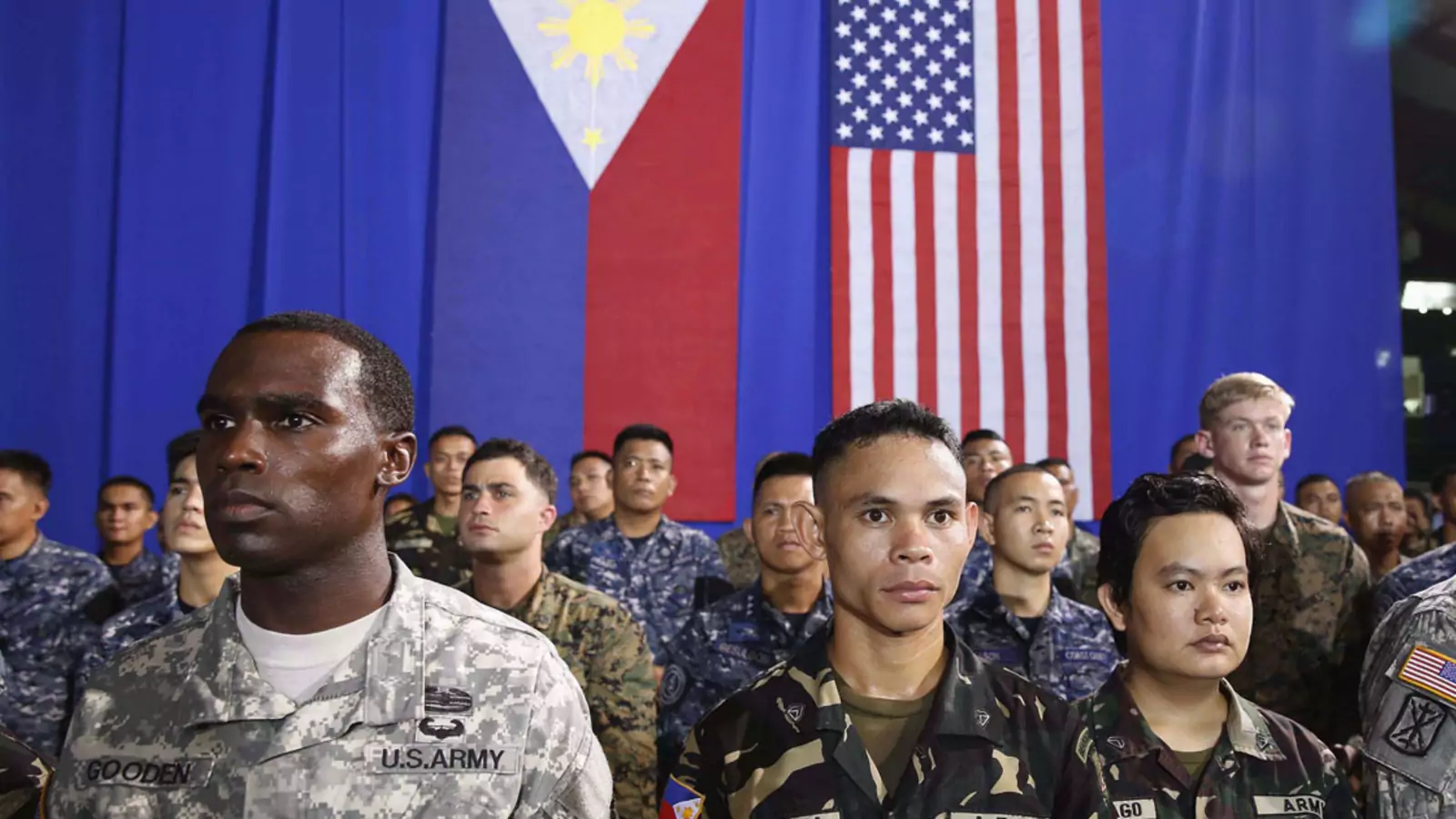Marcos is bringing in more friends to help deter Cina
New multilateral security groupings link Philippines with Japan, Australia, U.S.

While regional heavyweights such as Indonesia and Malaysia openly criticized the deal and Singapore and Vietnam remained largely mum, the Philippine government, in stark contrast, backed the deal as "essential to our national development and to the security of the region."The Southeast Asia nation's exceptional response should not come as a major surprise. To begin with, the Philippines has a treaty alliance with Washington as well as a visiting forces agreement pact with Australia.
Moreover, President Ferdinand Marcos Jr. has doubled down on defense cooperation with the U.S., giving Washington new access to Philippine military bases, reviving security dialogues and joining new multilateral discussions that also include Japan and Australia.
This shift has been largely driven by fears over China's expanding footprint in waters adjacent to the Philippines, but Marcos must balance greater security engagement with the U.S. and its allies with the risk of further inflaming relations with Beijing.
The rise of new power groupings in the Indo-Pacific region reflects growing frustration with existing multilateral platforms. After more than 20 years of negotiations, the Association of Southeast Asian Nations is still struggling with China over negotiations for a legally binding code of conduct to cover the disputed waters.
The situation is no better at the U.N., where China holds veto power as a permanent member of the Security Council. Unsurprisingly, Beijing has unabashedly defied Manila's award victory at The Hague under the U.N. Convention on the Law of the Sea over China's incursions into maritime areas claimed by the Philippines.
Bilateral engagement with China has failed to produce any breakthrough. Six years of strategic subservience under Rodrigo Duterte, Marcos' predecessor, failed to improve the situation on the ground. Nor did Marcos' own diplomatic outreach to China, highlighted with a state visit to Beijing in January, culminate in any tangible outcome.
Marcos' decision to expand cooperation with the U.S. under the Enhanced Defense Cooperation Agreement is part of a broader multilateral effort to constrain China's worst instincts.
Under the pact, the U.S. is set to gain access to and preposition weapons systems in strategically located facilities in the northern Philippine provinces of Isabela and Cagayan, close to Taiwan, as well as on the island of Palawan, near the South China Sea's Spratly Islands.
Two-plus-two meetings this week between U.S. Secretary of State Antony Blinken and Secretary of Defense Lloyd J. Austin III and their Philippine counterparts -- the first such dialogue in seven years -- will focus on upgrading the nations' alliance vis-a-vis China.
A stronger bilateral alliance in turn is serving as a foundation for wider cooperation in new, informal "minilateral" groupings, especially the emerging JAPHUS trilateral formation with Japan.
Both the Philippines and Japan are U.S. treaty allies and have naval facilities close to Taiwan. Military interoperability and tighter strategic coordination among the JAPHUS allies will be crucial to deterring China's revanchist ambitions. Upon Tokyo's request, U.S. National Security Adviser Jake Sullivan is expected to meet with his Japanese and Philippine counterparts later this month to iron out expanded military cooperation.
Political momentum undergirds the new power grouping. Authoritative surveys show that a majority of Filipinos support tighter security cooperation with both Japan and the U.S. to check China's expansion in the South China Sea.
Crucially, the Philippine Senate, which would have to ratify any major defense treaty, is supportive of enhanced security links. Senate President Miguel Zubiri has publicly backed the notion of a reciprocal base access agreement with Japan, as well as a visiting forces agreement, as "a major boost to our defense systems and practices." For its part, Japan has just launched a new security aid program to help like-minded neighbors including the Philippines.
Philippine Senate President Miguel Zubiri has publicly backed the notion of a reciprocal base access agreement with Japan, as well as a visiting forces agreement. (Sipa via AP Images)
Meanwhile, Manila is also pushing for quadrilateral security cooperation such as joint patrols in the South China Sea that would include Australia. The four countries will conduct their largest-ever joint exercises this month, with as many as 17,000 troops expected to attend the Philippines' annual Balikatan drills, this time being held close to the disputed Scarborough Shoal.
Last year, the Philippines conducted quadrilateral drills involving Japan, South Korea and the U.S. as part of the Kamandag exercises, with some held near the South China Sea.
Marcos should continue to ably leverage new geopolitical alignments to boost his country's deterrence capabilities as well as to expedite the modernization of the Philippine military through the acquisition of advanced armaments and warfare training.
But at the same time, Manila has to avoid excessively antagonizing China, a top trading partner.
Unsurprisingly, Beijing is already perturbed by the Philippines' strategic redirection. So Marcos must prepare for potential retribution by working with allies to protect critical infrastructure and democratic institutions from external sabotage. He should also steadily expand trade and investment relations with the West and Japan to mitigate against potential informal Chinese sanctions.
In fairness, there are indications that Manila is still hedging its bets, refusing to fully align with the West against China yet.
To stanch Beijing's fears, the Marcos administration relocated some major war games with the U.S. away from Taiwan. Manila also has yet to give Washington access to a number of its most prized northern military bases, particularly those on the islands of Fuga and Mavulis, around 100 nautical miles from Taiwan.
Over the coming years, the Marcos administration will have to constantly balance deterrence in tandem with allies and engagement with China to protect the Philippines' national interests.





No comments:
Post a Comment
Note: Only a member of this blog may post a comment.